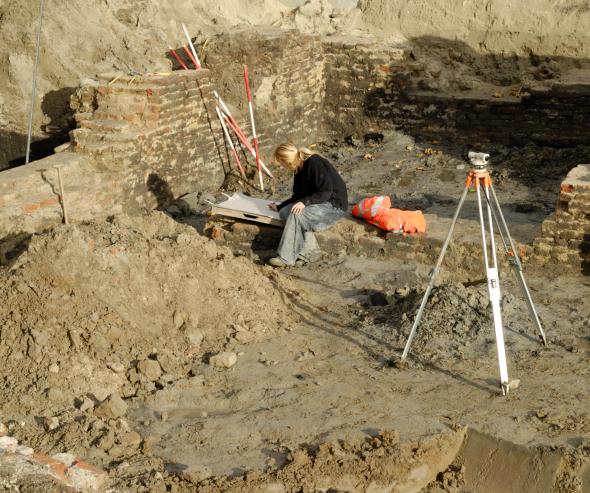01 June 2017: Archaeology

The Autorité de la concurrence welcomes the decision of the French government to provide
preventive archaeology operators with all necessary information
to respond effectively to calls for tenders launched by developers.
The Autorité also accepts INRAP’s proposed commitments aimed at
separating, from an accounting perspective, the institute’s public service missions from its activities in the competitive sector.
The archaeology sector
Whenever work planned by a developer1 is liable to destroy or irreparably damage a site that may contain archaeological remains, the French State may stipulate that rescue excavations be carried out. In such cases, the developer contracts a service provider to perform a preliminary diagnostic survey before conducting the excavations.
The diagnostic survey sector is a public monopoly shared between the French National Institute for Preventive Archaeological Research (Institut national de recherches archéologiques préventives, INRAP) and archaeology departments at local and regional authorities. The excavation sector has been open to competition since 2003. INRAP is a public institution operating in both the diagnostic survey and excavation sectors. It is the leading player in the preventive excavation sector.
Complaint
Several competitors of INRAP claimed that the publicly-owned organisation was leveraging its position as a monopoly operator in the diagnostic survey business to distort competition further down in the preventive excavation business. In particular, these competitors claimed that INRAP enjoyed privileged access to information arising from its diagnostic survey operations, and that the institute’s pricing policy was made possible by public subsidies.
Competition concerns
• Privileged access by INRAP to site information
Excavation services providers have a range of regulatory information issued by government agencies when they stipulate excavations. As an excavation services provider, INRAP also has access to this information. However, in its capacity as the operator performing the preliminary diagnostic survey, the institute may have access to more detailed information than that available to other excavation services providers (for example, the survey order and survey report).
Where survey and excavation missions are not assigned to separate teams, such teams may benefit from more comprehensive information and according to different procedures than their competitors, procuring an unfair competitive advantage.
• Cross-subsidy risk
As a public institution having an administrative role and public service missions (including diagnostic surveys), INRAP is largely financed by public funds. However, there is no reliable, watertight accounting and financial separation between such activities and INRAP’s competitive activities (excavations). Consequently, there is a risk of cross-subsidies between the institute’s public service activities and its commercial businesses, potentially resulting in anticompetitive prices (predatory or exclusionary pricing).
Measures adopted
• Implementation of a data hosting platform
In response to the competition concerns raised by the Autorité, INRAP proposed a number of commitments that were submitted for consultation (market test).
Specifically, INRAP offered to systematically include all diagnostic survey-related data collected by its employees while conducting survey operations in the survey report submitted to the relevant government agencies.
Acknowledging the difficulty for INRAP to address all aspects of the identified competition issue alone, the French State decided in the course of the procedure to implement, by 1 March 2018, with an interim arrangement until then, a secure online platform enabling all excavation services providers to access the preliminary information available to diagnostic survey operators within a comparable time frame. In view of the undertakings given by the French State during the session, regarding effective reform of the means of access to preliminary archaeological information, the commitments originally proposed by INRAP are no longer relevant, as the system envisaged by the French State addresses the competition concern identified by the Autorité de la concurrence.
The Autorité welcomes the implementation of this dedicated online platform. This innovative structural reform will effectively and durably resolve the competition problems affecting the sector, by enabling equivalent conditions of access to information for all excavation services providers while preserving the activity’s specific, highly scientific nature.
• Introduction of analytical accounting
INRAP also offered a commitment to implement an analytical accounting system to guarantee a clear accounting and financial separation (reliable and watertight) between the institute’s non-profit and for-profit activities, This commitment will enable the resources allocated to each mission to be tracked, helping to eliminate any risk of cross-subsidies.
1 A developer purchases land with the intention of creating an selling developed building plots.
> See Decision 17-D-09 of 1 June 2017 regarding practices implemented by the French national Institute for Preventive Archaelogical Research (Inrap) in the preventive archaeology sector
> Press contact: Chloé Duretête / Tel.: +33 (0)1 55 04 01 20 / Email